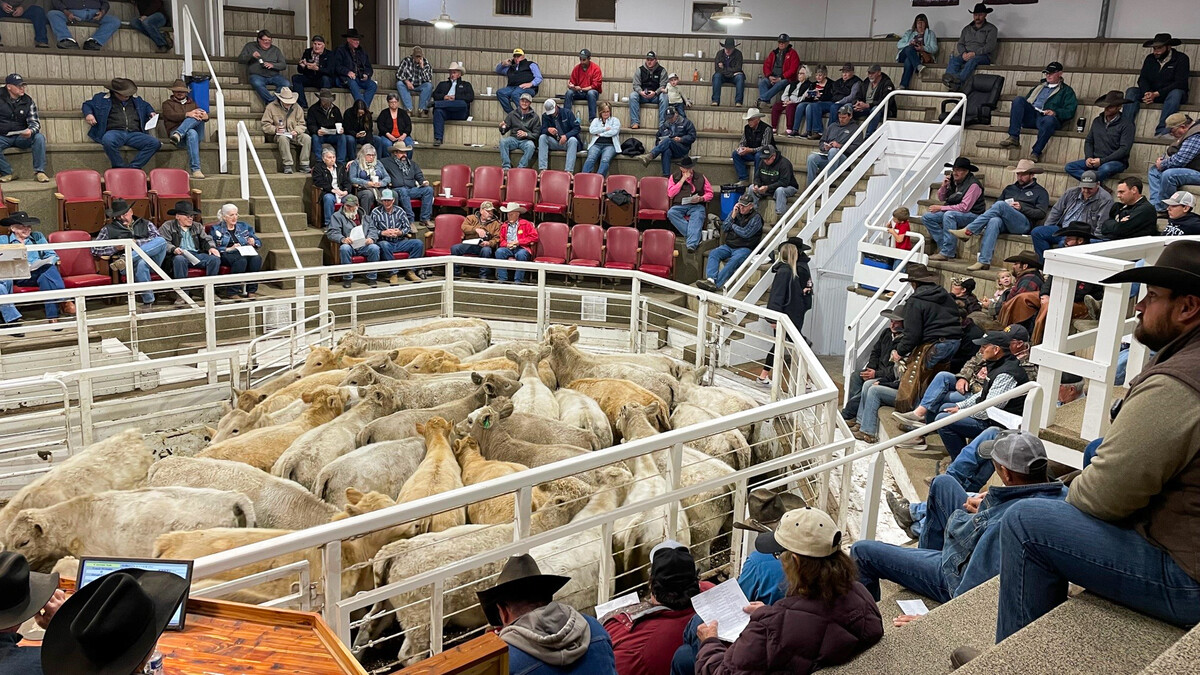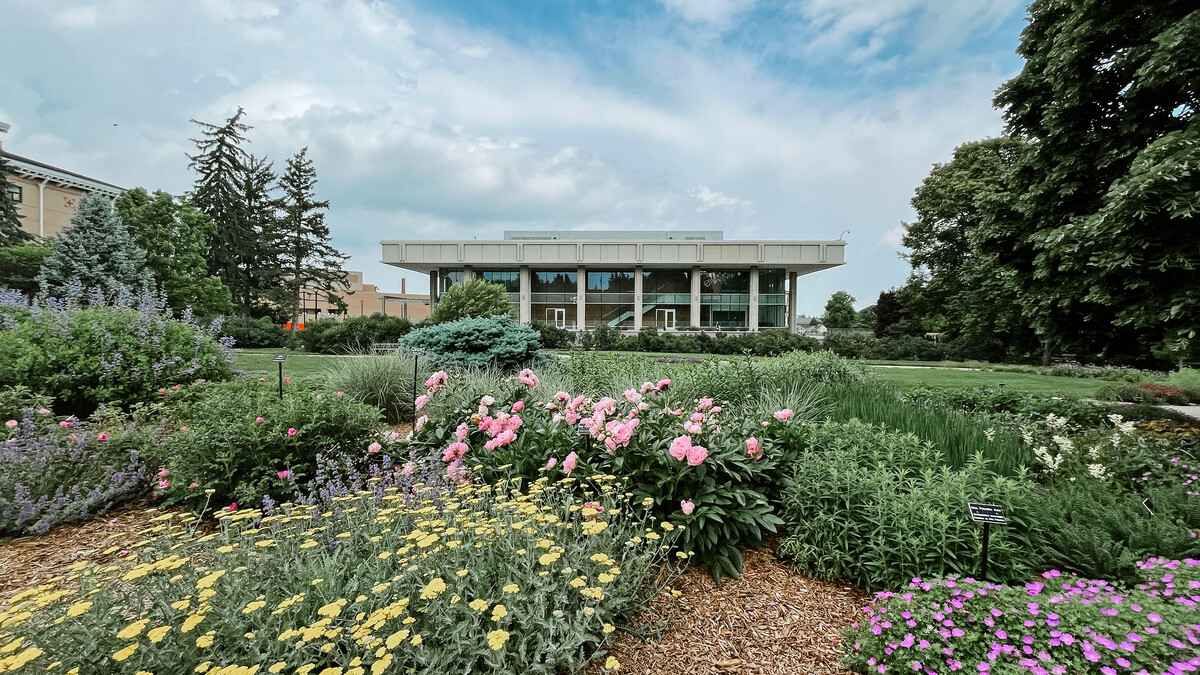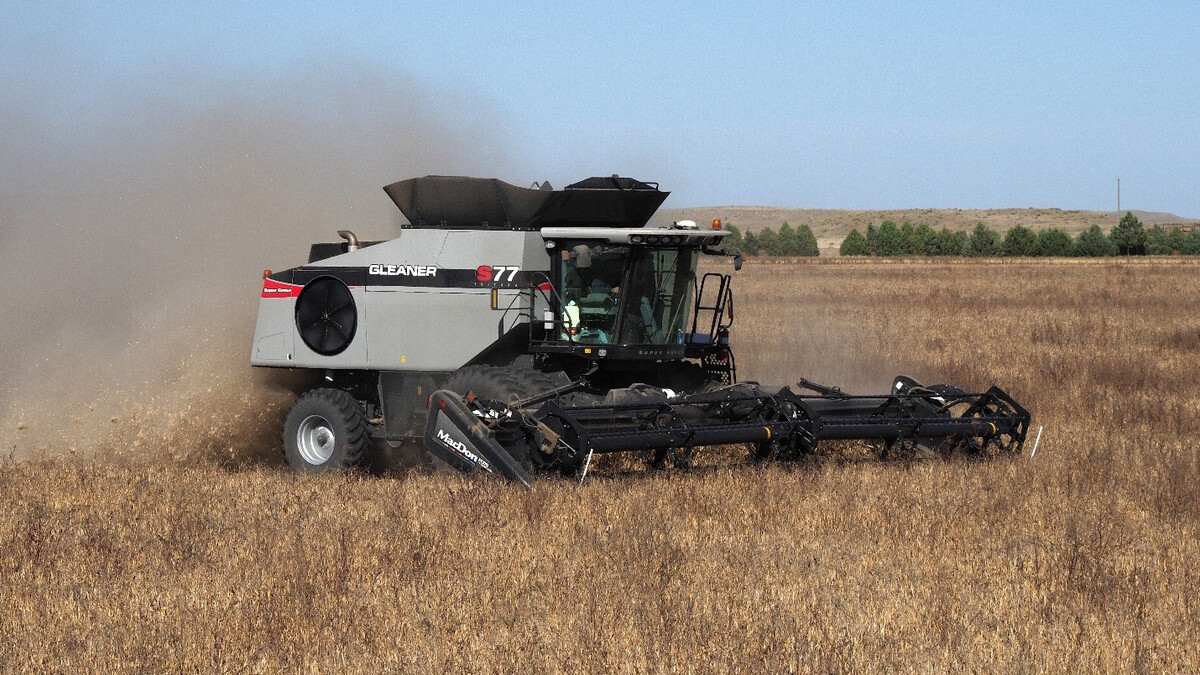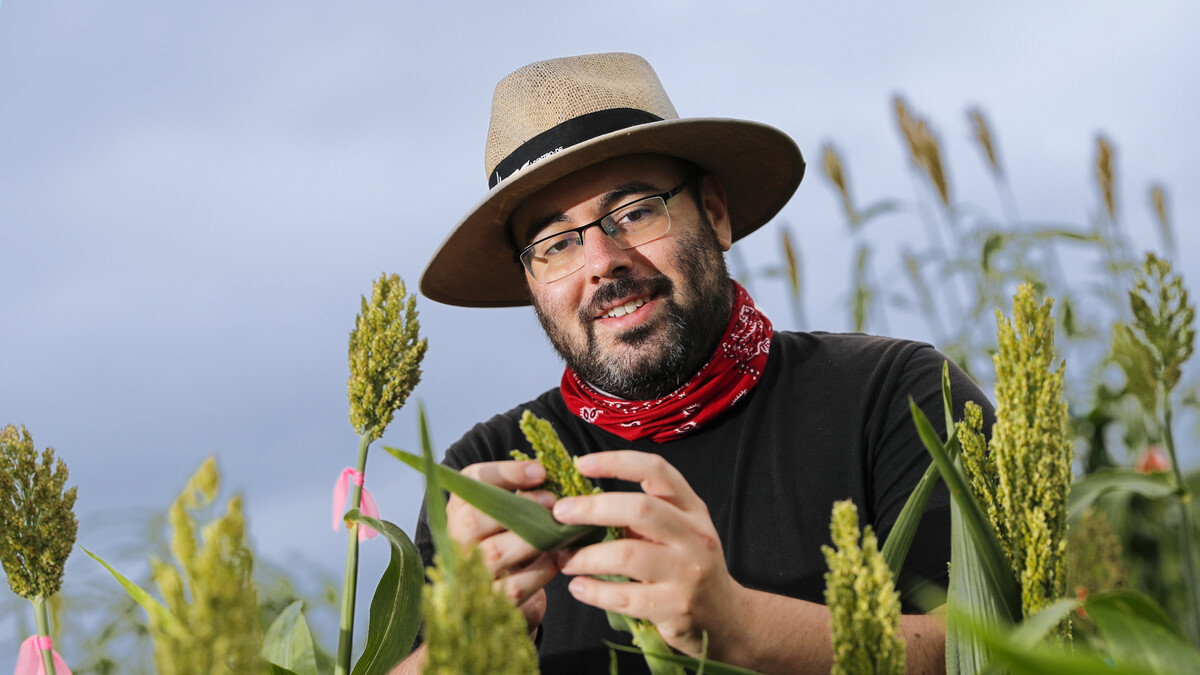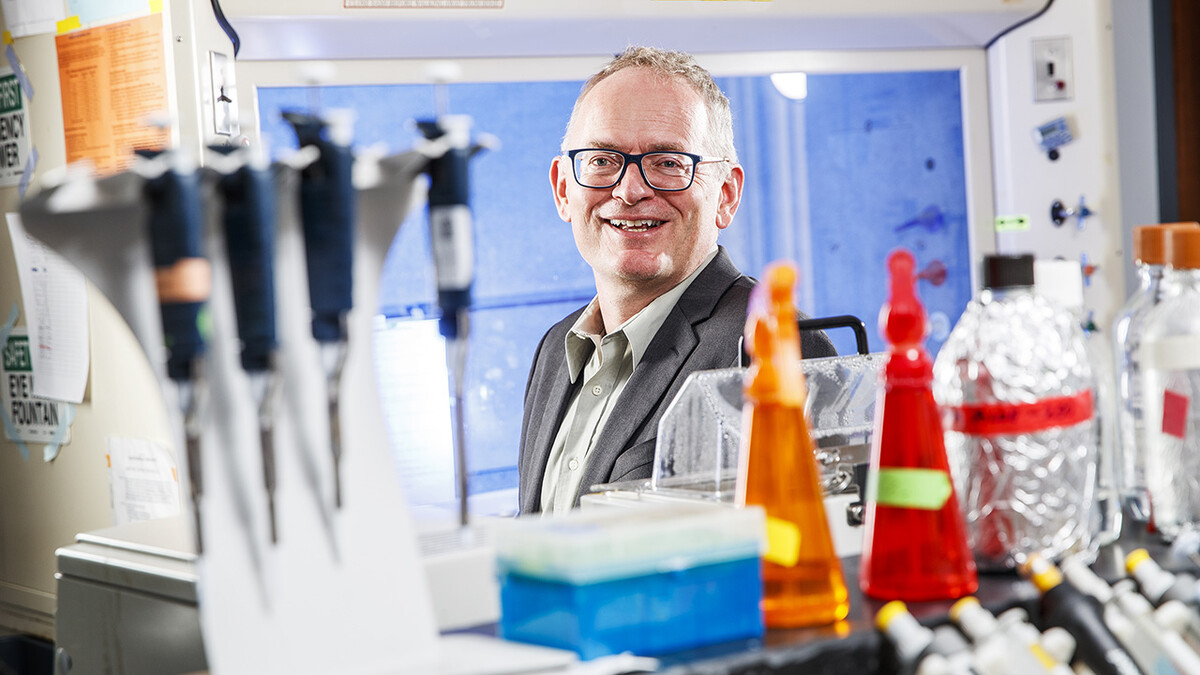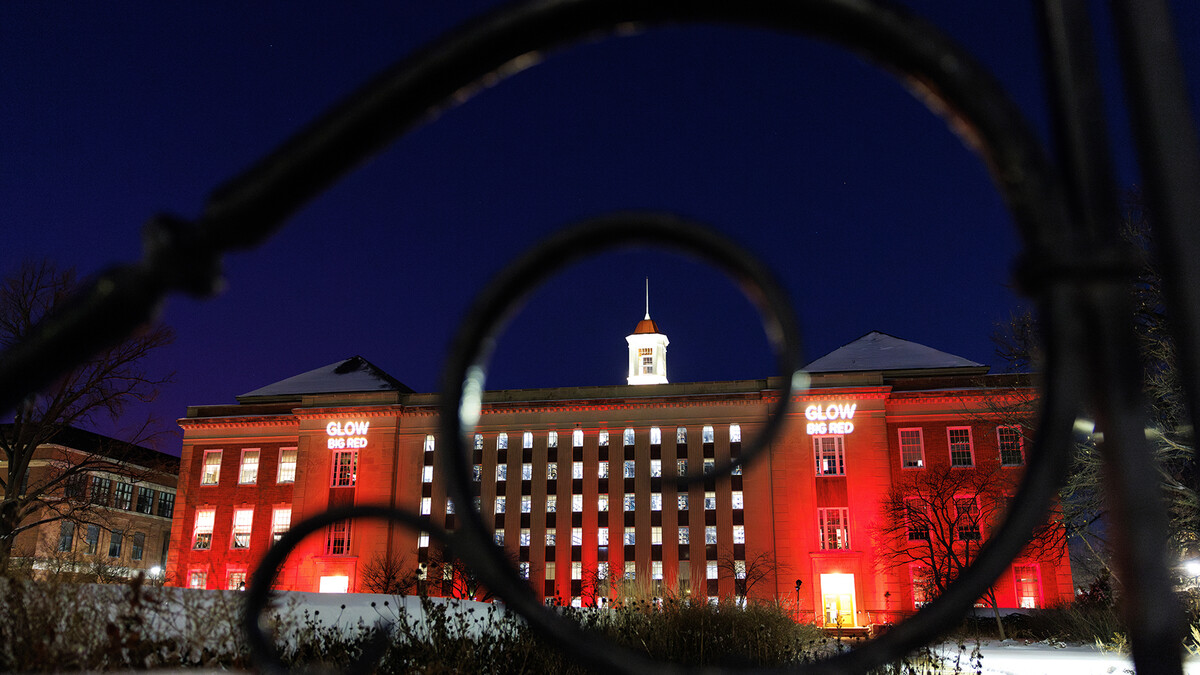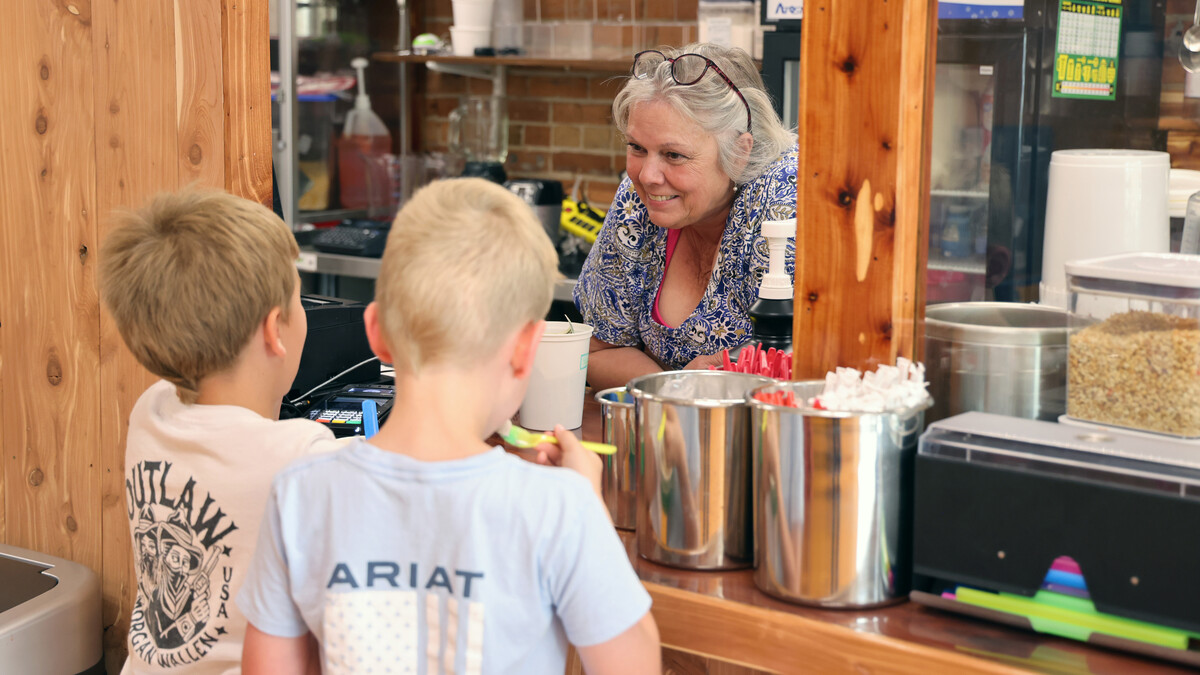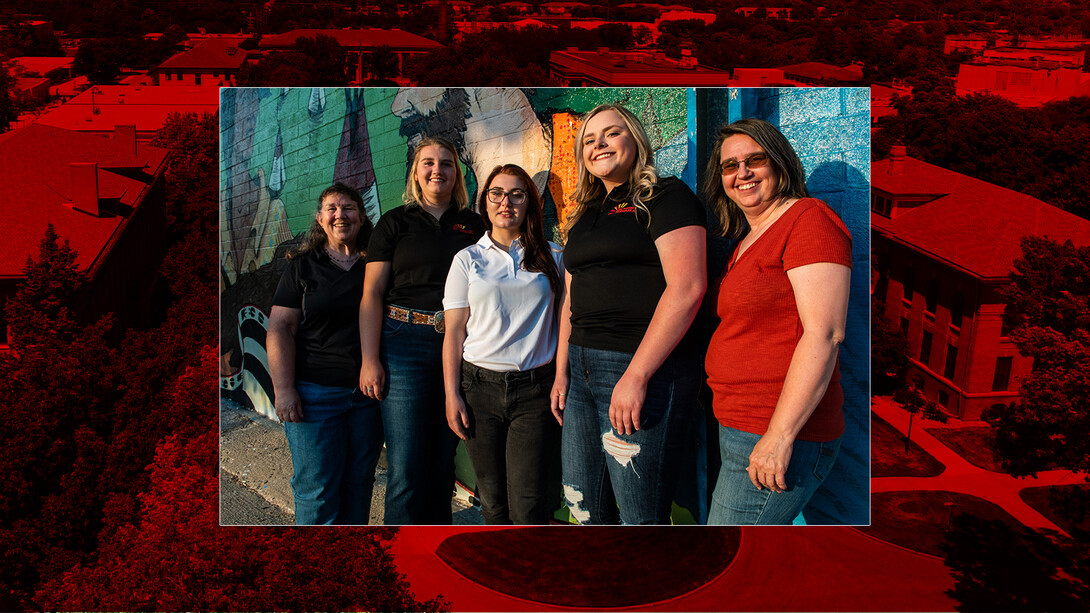
Lincoln, Neb. —Three college students from different parts of Nebraska are spending the summer in the Chadron area of northwest Nebraska, learning while helping strengthen the community through the University of Nebraska-Lincoln’s Rural Fellows internship program.
The Rural Fellows are helping bolster tourism efforts and mental health services for K-12 students.
The students, Jacy Hafer, Hanna Jemison and Chantelle Schulz, are working with several local organizations while under the coordination and mentorship of Jenny Nixon, Rural Prosperity Educator with Nebraska Extension in the northern Panhandle.
Rural Fellows, an internship program of Rural Prosperity Nebraska, a program of the University of Nebraska Lincoln Institute of Agriculture and Natural Resources (UNL IANR), connects college students to rural communities to provide hands-on working experience to students while promoting meaningful change for communities. College students from Nebraska and elsewhere spend their summers living and working in rural communities across Nebraska and the Midwest, completing projects focused on supporting communities make progress toward strategic and specific goals that help the community thrive.
Hafer, Jemison and Schulz are among 35 Rural Fellows placed in 17 locations across Nebraska this summer. This fall, Rural Fellows will be encouraging communities t apply to participate next summer.
More information and contact info for the team is at the Rural Fellows website, https://ruralprosperityne.unl.edu/rural-fellows
According to the website, Rural Fellows commonly focus on community, workforce and economic development; business development; early childhood education; community marketing and communications; entrepreneurship; mental health services; inclusive leadership development; and other areas. The Rural Fellows program benefits both the students and the communities.
This summer in the northern Panhandle, several local organizations and agencies are key partners, according to Nixon. They include Educational Service Unit No. 13, Chadron Public Schools and Discover Northwest Nebraska Tourism office.
In Chadron, the rural fellows are providing support for Chadron Public Schools’ services to families by developing materials to explain the school district’s policies, services and key professionals related to mental health. Another project supports promotion of tourism, which is important to the local economy. The rural fellows are developing a survey tool and working on using the survey to gather data by directly contacting visitors and gaining the cooperation of businesses to distribute surveys as well. And they are boosting tourism in another way by creating videos about the recreational trails in the area.
“There’s lots of stuff for these interns to do this summer and I’m really excited because they’ve been taking off and been accomplishing so much so quickly,” Nixon said
Jacy Hafer, a Dunning native, is a junior at UNL majoring in ag leadership with a minor in ag entrepreneurship and psychology. After graduation, Hafer plans to work in rural development or in HR for an ag company.
She is working with Kerri Rempp, director at Discover Northwest Nebraska, to create an app providing information for visitors. The app is intended to be a one-stop source of information about restaurants, hotels and other places to stay, tourism attractions such as state parks, and trails. Hafer has been busy entering data. “It’s a lengthy process, but we hope to have all the data in and up for test trials by the end of the summer,” she said.
She’s also helping Chadron Public Schools’ Cardinal Facilities Fund by creating advertisements and slides to recognize donors who have helped CPS make updates and maintenance to their buildings. And along with Jemison and Schulz, she is working on a handbook for psychological and behavioral health unit for ESU 13.
Hanna Jemison, a student at Central Community College in Columbus, was placed at Chadron because of her interest in mental health issues and is taking the lead on projects related to mental health. A psychology major, Jemison plans to become a mental health provider of some kind. “I come from a rural community and there’s a huge lack of providers so that is really important to me.”
Jemison is creating three brochures: a list of mental health providers and resources available to the whole Dawes County Community; a handbook for parents of students in Chadron Public Schools listing and describing the mental health resources available to them; and a parents’ guide to emergency protective custody. “It can be a really scary situation and they have a lot of questions,” Jemison said. “Of course they want what’s best for their child.” In addition to UNL funding, Jemison’s work is funded partially by ESU 13 and City of Chadron.
Chantelle Schulz is a senior from McCool Junction who plans to graduate in August and is considering entering the work force in an agriculture-related field, but has long-term ambitions of earning a master’s degree and putting it to work in an ag-related field. Schulz has been assisting Jemison in developing the CPS student services handbook. Eventually she hopes to use the handbook as a model for her hometown school.
She also is working on the tourism data project. The survey is intended to gather data about where visitors come from; how many people are in their group; how long and where they stay; how they traveled to the area; what attractions they have visited, and which of those they enjoyed the most. The Rural Fellows hope to get local businesses involved in the survey effort to reach more visitors than they can through direct contacts.
“People involved in tourism here want to understand the economic impact of tourism – how much the tourism is impacting Dawes County and how they can increase that for future reference,” she said.
Using video to share information about area trails is an idea that Hafer and Schulz came up with at the beginning of the summer. They plan to use videos and photos to feature the area’s trails, landmarks and buttes, working with an intern at Discover Northwest Nebraska, and share them on the tourism organization’s website. (http://discovernwnebraska.com/).
The Rural Fellow students have been matched with communities according to their interests and skills, according to Nixon. The communities submitted a proposal.
Both projects are local priorities. Chadron has had several students over the years work with them on mental health issues. The community is a hub of health resources for the area. And the tourism project has great potential to help the local community move forward on a project that’s important to future tourism development.
Local organizations don’t have the staff available to tackle some of these projects on their own, she said. Often they have a single employee.
The fellows said they hope to have lasting positive effects on communities. Hafer said, “Overall the goal for us, tourism wise and especially mental health wise, is empowering our community through education – mental health-wise, getting those services and brochures out there so people understand what’s available to them but also getting rid of the stigma that surrounds mental health.”
Schulz added that the local organizations are supportive. “Every single organization we’re working with … (has) allowed us to have an open space to work, to study, anything we need. They’re always making sure we have an opportunity to do our best. Not all internships are like this.”
Jemison said the rural fellows feed off the support of their local partners. “I could hear how passionate they were about that issue (emergency protective custody) and it’s about ensuring the well-being of students and the community at large. It was really inspiring.
Rural Fellows also fulfill service commitments to the local communities. Hafer, Jemison and Schulz have spent time cooking and serving at Closer to Home in Chadron, which provides free hot meals.
Nixon says one benefit of the Rural Fellows program that isn’t immediately apparent is the connection between different communities in Nebraska.
“The ability to share good news and questions or problems between communities allows us to share what is working well and creative ideas to address community problems. I’m glad this program is set up to interconnect communities.”
